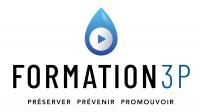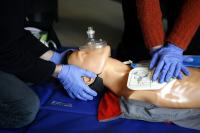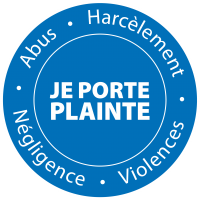Formation
-

Aquatic Management 2.0 Training! Become an expert aquatic manager with our updated training program. Completely redesigned, our program focuses on the practical tasks of an aquatic manager, providing you with the essential tools to excel in your role.
-
 The Head Instructor Workshop is designed for employees aspiring to excel in their role as swim lesson supervisors. This unique training will help you develop your skills in supervision, problem-solving, and refinement, while strengthening your leadership and communication abilities.
The Head Instructor Workshop is designed for employees aspiring to excel in their role as swim lesson supervisors. This unique training will help you develop your skills in supervision, problem-solving, and refinement, while strengthening your leadership and communication abilities. -
 Do you work at a day camp? Would you like to gain basic first aid knowledge to quickly respond to emergency situations in this context?
Do you work at a day camp? Would you like to gain basic first aid knowledge to quickly respond to emergency situations in this context? -
 It has come to our attention that there seems to be some misunderstanding regarding the sequence to follow in case of vomiting during cardiopulmonary resuscitation (CPR). We would like to provide some guidance to address this recurring question.
It has come to our attention that there seems to be some misunderstanding regarding the sequence to follow in case of vomiting during cardiopulmonary resuscitation (CPR). We would like to provide some guidance to address this recurring question. -

To provide the public with access to supervised and safe swimming areas this summer, the Régie du bâtiment du Québec (RBQ) has implementedsome «mesures qui atténueront les répercussions de la pénurie de main-d’œuvre qualifiée en surveillance et en sauvetage aquatique.»
-
 Formation 3P is now offering the asynchronous theory portion of the National Lifeguard Certification.
Formation 3P is now offering the asynchronous theory portion of the National Lifeguard Certification. -
 The Lifesaving Society is following in the footsteps of sports federations recognized by the Quebec government, by adopting a Policy, Rules and Procedures for the Protection of Integrity.
The Lifesaving Society is following in the footsteps of sports federations recognized by the Quebec government, by adopting a Policy, Rules and Procedures for the Protection of Integrity. -
 Some prerequisites have been organized for candidates wishing to follow the National Lifeguard training.
Some prerequisites have been organized for candidates wishing to follow the National Lifeguard training. -

Be prepared before taking your National Lifeguard recertification! It is an exam in which your physical fitness, lifesaving abilities, knowledge and judgment are evaluated. For example, you can be asked to transfer a spinal-injured victim onto a spinal board. Being ready make it possible to reduce the recertification length and minimize the risk of failure.
-
 This code of conduct for members of the Leadership Program, while distinct from the general Code of Conduct for members, is based on the same values and aims to clarify the expected behaviors of Leadership Program members: instructors, trainers, coaches, and volunteers. It also serves as an opportunity for the Lifesaving Society to reaffirm its commitment to promoting a healthy, respectful, and safe environment that fosters harmonious relationships.
This code of conduct for members of the Leadership Program, while distinct from the general Code of Conduct for members, is based on the same values and aims to clarify the expected behaviors of Leadership Program members: instructors, trainers, coaches, and volunteers. It also serves as an opportunity for the Lifesaving Society to reaffirm its commitment to promoting a healthy, respectful, and safe environment that fosters harmonious relationships.





